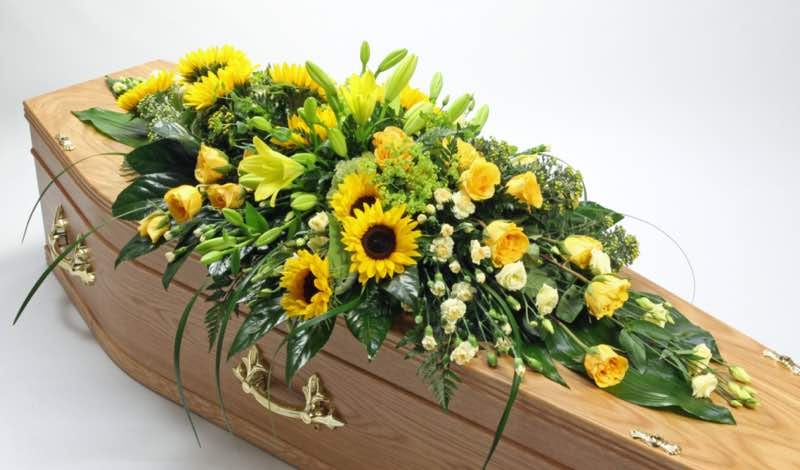Take the deathbed test
Ask a dying version of you for advise so you can avoid the top regrets of the dying
The next time you have an important life decision to make — imagine yourself in the future, old and frail and you’re lying on your deathbed — now ask this version of you to decide. This is what psychologists refer to as “the deathbed test”. The idea is that this “dying you” will make less cautious decisions in an effort to live without regret, whereas the “current you” often makes decisions based on what’s comfortable or convenient.
Top 5 regrets of the dying
Bronnie Ware worked as a carer for patients in the last 12 weeks of life. In her book The Top Five Regrets of the Dying she records the most common regrets of those on their deathbed. Although Ware's findings lack scientific rigour, her anecdotes are still interesting to read. Unsurprisingly, spending more time on social media or working longer hours didn't make the list of regrets. Here's what did:
1: I wish I’d lived a life true to myself
This was the most common regret of all. When people realise that their life is almost over and look back clearly on it, it is easy to see how many dreams have gone unfulfilled. Most people had not honoured even a half of their dreams and had to die knowing that it was due to choices they had made, or not made. Health brings a freedom very few realise, until they no longer have it.
2: I wish I hadn’t worked so hard
This came from every male patient that I nursed. They missed their children's youth and their partner's companionship. Women also spoke of this regret, but as most were from an older generation, many of the female patients had not been breadwinners. All of the men I nursed deeply regretted spending so much of their lives on the treadmill of a work existence.
3: I wish I had the courage to express my feelings
Many people suppressed their feelings in order to keep peace with others. As a result, they settled for a mediocre existence and never became who they were truly capable of becoming. Many developed illnesses relating to the bitterness and resentment they carried as a result.
4: I wish I had stayed in touch with my friends
Often they would not truly realise the full benefits of old friends until their dying weeks and it was not always possible to track them down. Many had become so caught up in their own lives that they had let golden friendships slip by over the years. There were many deep regrets about not giving friendships the time and effort that they deserved. Everyone misses their friends when they are dying.
5: I wish I had let myself be happier
This is a surprisingly common one. Many did not realise until the end that happiness is a choice. They had stayed stuck in old patterns and habits. The so-called 'comfort' of familiarity overflowed into their emotions, as well as their physical lives. Fear of change had them pretending to others, and to their selves, that they were content, when deep within, they longed to laugh properly and have silliness in their life again.
A lot of this resonated with me, namely, the not honouring of dreams, spending too much time on the treadmill of work, not being true to oneself, and living too comfortably while fearing change. It’s hard to argue that making these changes wouldn’t lead to a better life.
My deathbed test
I don’t have a specific question for my “deathbed me”, but if instead I assume my life stays on its current trajectory, then these are the things that would disappoint me the most when dying:
Spending too much time in a pointless job: if I were to film what goes on at my office it would become a hilarious smash hit on Netflix. It’s one big Dilbert strip. Many have realised (especially in the FIRE community) that simply changing jobs isn't the solution. The chances are, you still end up in an office dealing with stupid politics and glued to a screen sending emails all day. Undoubtedly, this would be a monstrous regret if I spent another 20+ years doing the same mindless nonsense.
Not honouring my dreams: if I was stuck doing office work for another 20+ years then it meant I didn't honour my dreams of travel and living outside of what society prescribes. Instead, I lived fearfully and took the easy route of taking a nice paycheque each month.
Not experiencing enough: I've been guilty of not trying enough and being a creature of habit. A recent wake-up call was reading James Wallman’s book Time and How to Spend It. His philosophy of “life is about experiences” resonates with me. But I've experienced nowhere near enough so my deathbed test result would be disappointing.
Don't be fake
Research suggests that an inauthentic smile to hide unhappiness can further worsen your mood. I've also read how inauthentic happiness can lead to mental health issues and is especially prevalent with airline attendants.
This isn’t just the service sector though, inside the office, we all have to put on an act and nod our heads and pretend what we’re doing isn’t ridiculous. Living so much of life inauthentically will be a deathbed regret whoever you are. For many, it’s hard to opt out of this charade because of bills and family responsibilities. If you're fortunate and have an escape route, then there’s no excuse not to use it.
Summary
To date, I can't think of too many things that I’d have chosen differently given the chance. So on that basis, I don’t have deathbed regrets. But that changes dramatically if I continue the same safe path and don’t get out. Our prehistoric genes like routine as this kept us from danger but the safe path will inevitably end in catastrophic regret.



